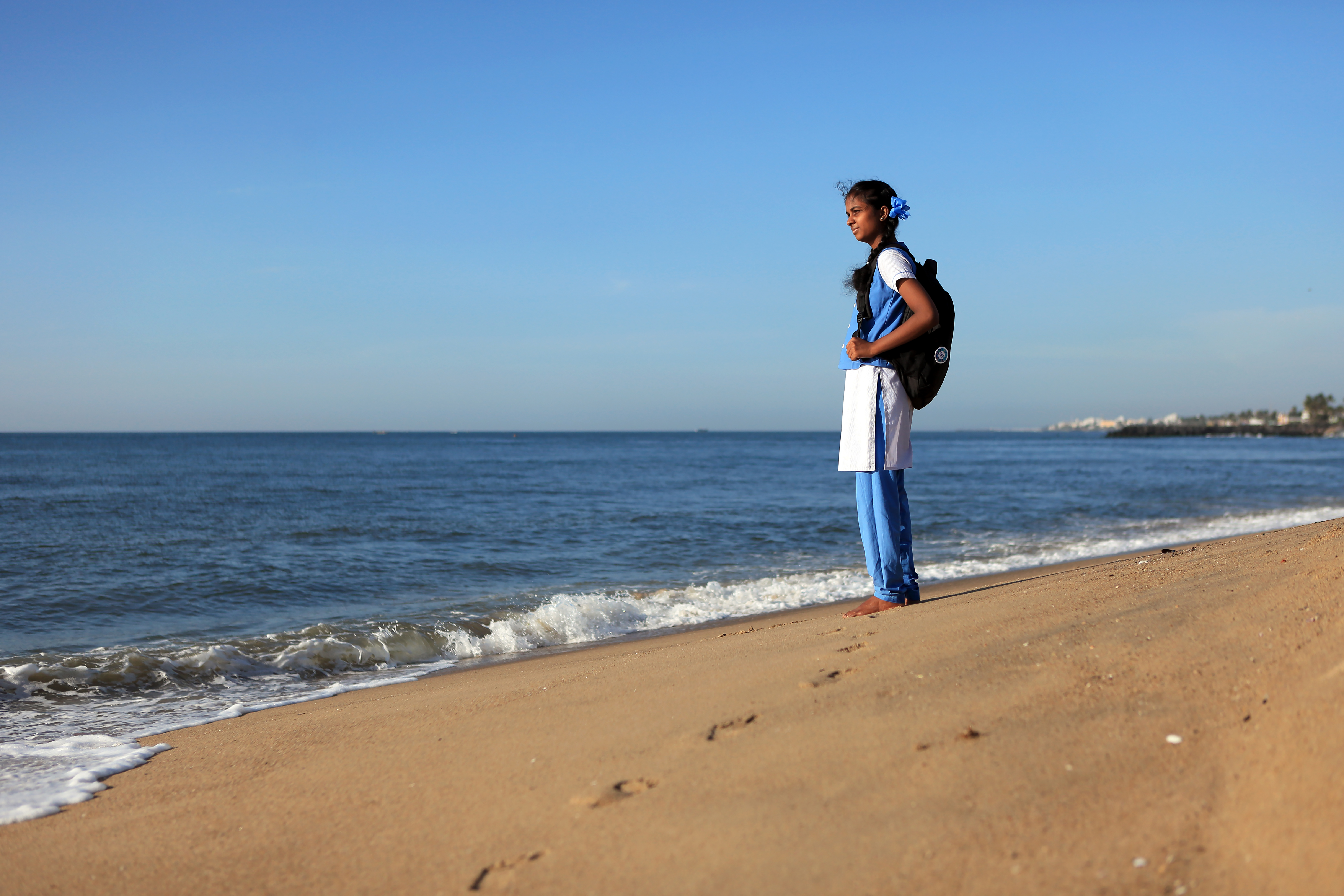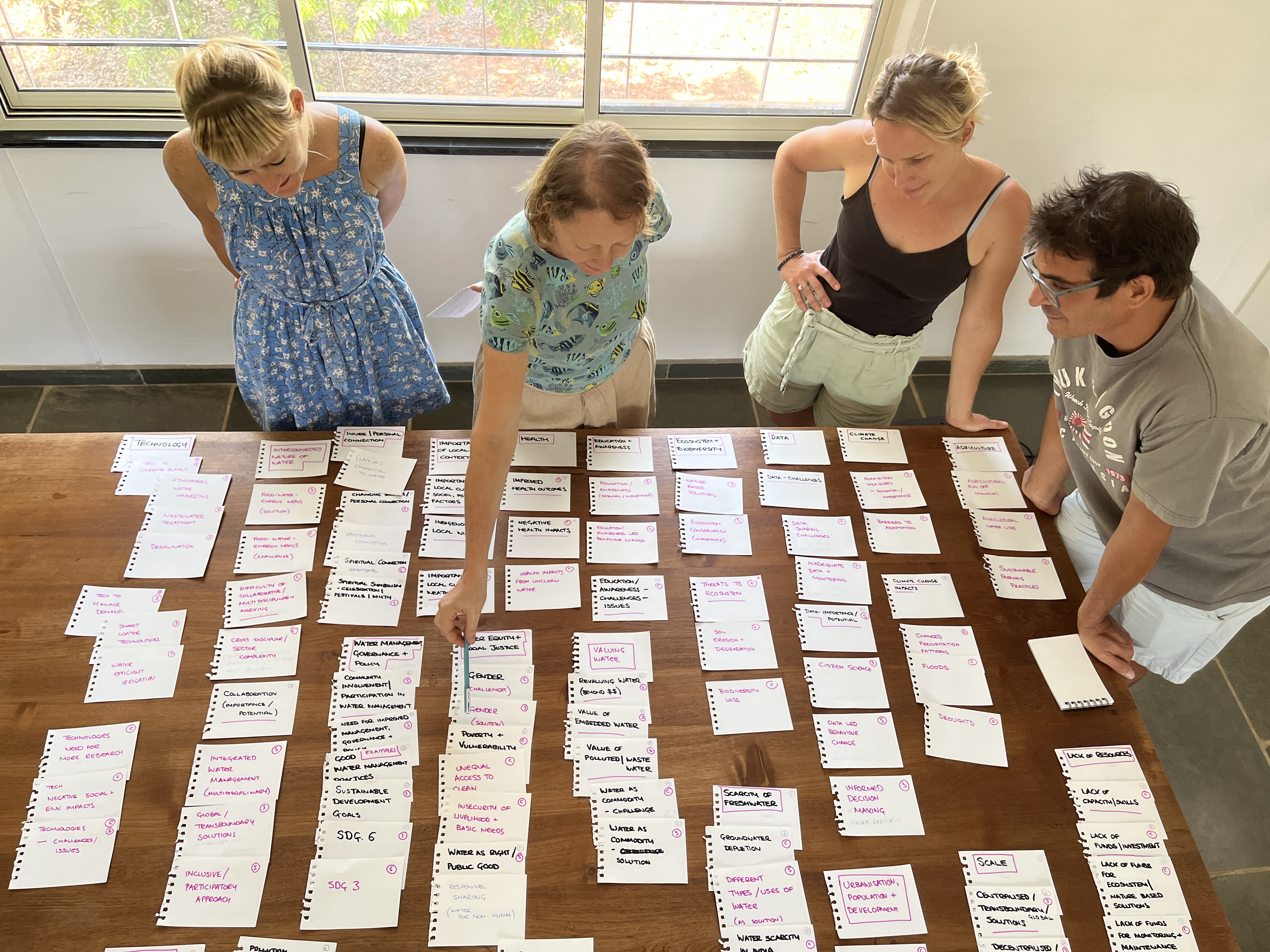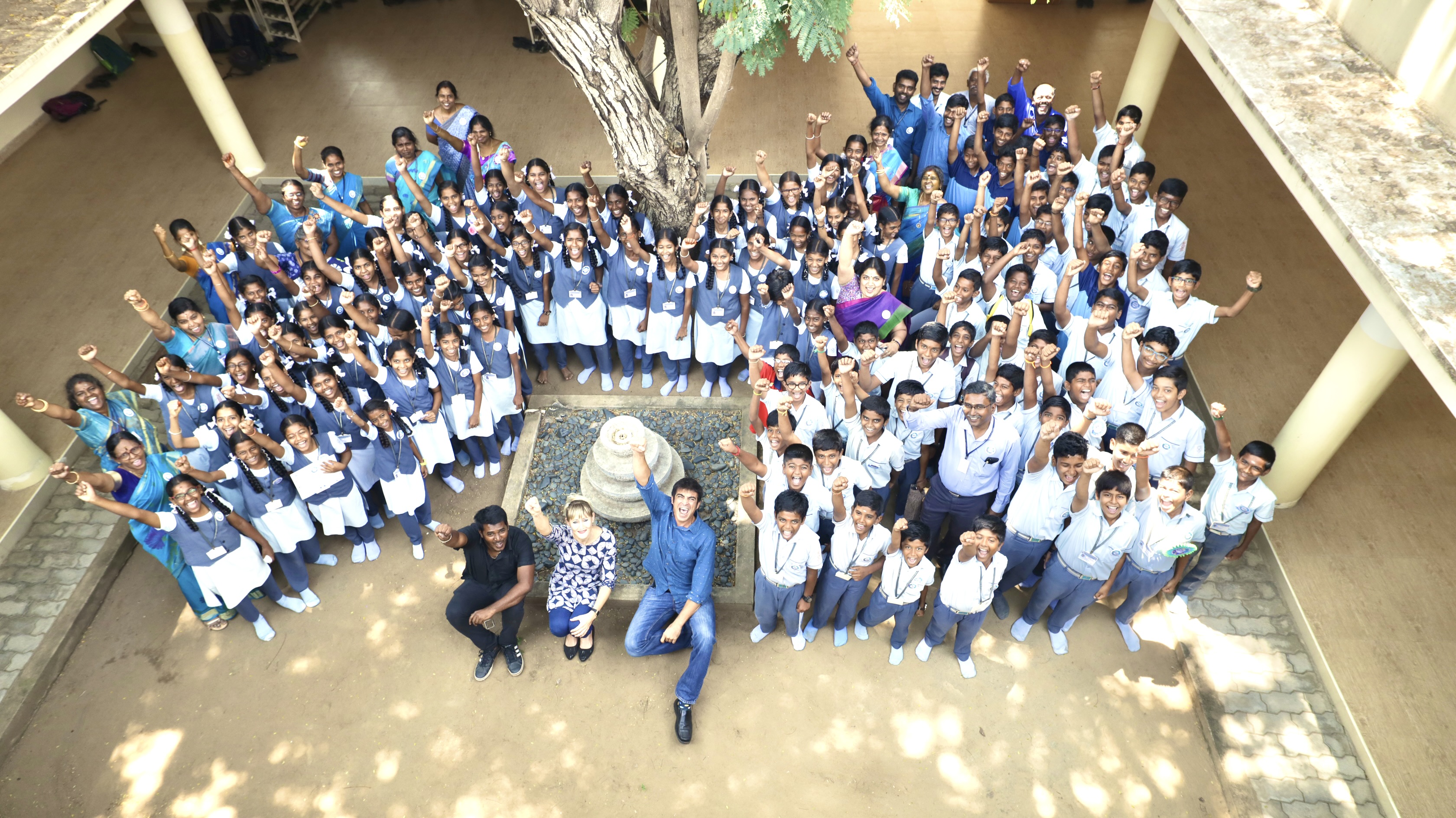A Letter from Chandrah and Ribhu of WasteLess
Sign Up for our WasteLess Event!
Saturday | August 3 | 11am ET
ONLINE
Join ‘A Conversation with Ribhu and Chandrah,’ with a surprise special guest to hear more about their journey in creating their innovative water curriculum.
Dear AVI USA Friends,
We hope that you are doing well.
We are writing to you from WasteLess. We are Chandrah and Ribhu, siblings who grew up together in the barren Auroville of the 80s and 90s. With the freedom of exploration and playing in the red soil canyons, which turned into wild streams every monsoon. We saw how new seedlings sprouted and grew, attracting life and providing shade and food., We cherish Auroville and always carry love and gratitude for our home and nature in our hearts. When we witnessed the ever increasing litter and plastic consumption, we knew that we had to do our own bit to protect and bring about much needed change.
Over the past 12 years, we at WasteLess have developed five different curricula addressing the global issue of waste and pollution. Inspired by our personal educational experience in Auroville and driven by our curiosity and the freedom to explore the work that we do, we have created a unique process of designing educational programs.
Watch Our Nat Geo video below:
WasteLess: The Beginnings
The Asian heat wave has had its firm grip on us in Auroville this summer. Temperatures already reached 40°C (104°F) in May, with high humidity levels and dried-out water catchments. Recent sporadic summer monsoon showers have brought some relief. However the laterite red soil is dry, and the roads are as dusty as ever, bringing back memories of our trip to South Africa.
In March 2018, we witnessed Day Zero in Cape Town. We vividly remember the beautiful blue skies and bright sunshine blazing down on the city, with everyone discussing dams and that soon the day would arrive when the water would run out: Day Zero. We were told that a 20-second shower must suffice, and once a day only. Water was being rationed to the extreme.
Having just arrived from India, where we refresh our bodies at least twice a day during the summer months, we were confused. What was this looming day all about?
We quickly learned that South Africa was facing extreme droughts, and that the local dams were running dry. The consequence was that the government had turned off the taps for most homes and businesses in the city to conserve the very last supplies.
Every person was allowed 13 gallons of water per day. It was tightly measured, including one toilet flush per day. People were driving to their local supermarkets at 5 a.m. to queue for packaged drinking water. Supplies soon ran out. Everyone was praying for rain. We were in the midst of a climate disaster.
On our flight home, we realized that we had just witnessed the future scenario of our own home- Auroville, and probably that of every citizen of India and Southeast Asia.
Predictions forecast that India will need to import water by 2050 if we continue to deplete our groundwater and fail to recharge our aquifers. These projections are similar on a global level. Scientists estimate that 80% of the world’s population is facing significant threats to their water security.
This shocking experience really hit home and inspired us to think about how we could act in our own capacity. The idea of developing a new educational program on fresh water was born.

We believe that when it comes to environmental education, the materials require more than simply filling heads with facts. The classroom experience has to light a fire in the students’ hearts, making them feel seen and valued. It is essential that each aspect of each lesson is driven by the interest of the children to provide them with an opening to follow their own curiosity, and provide them with the opportunity to take ownership of the issue at hand.
To achieve this, we have designed an engaging and flexible process through trial and error to develop our curricula. When we started in 2012 with the creation of Garbology, our work looked very different. We thought a 6-month period would suffice. Today, we plan for a five-year process outlined with very detailed phases, each carrying its specific starting point and goal. One aspect has remained the same since the day we set out to make a change: it is the close-knit interactions with our target group- children. Understanding their experiences, knowledge, beliefs, as well as behaviors connected to the topic of the curriculum at hand, is a key component of our process. We also learned that involving the teachers early on in the design process is very beneficial to ensure that the final lesson plan is user-friendly and will reach the maximum impact within the various educational settings of India.
We are using this very same approach in designing our fresh water curriculum, which includes five phases of development. In the first year, we conduct an extensive research and analysis with the aim to understand the issue at hand from a scientific point of view. We believe that it is important to include the latest scientific findings on challenges and solutions connected to fresh water to ensure that the students have access to information that is relevant to the current moment in time as well as the place they are living in. We conclude this first phase with a framework for the educational program. The second phase is extremely engaging and creative as we as a team spend hours brainstorming to design an educational experience for children that includes games, stories, and create and test experiments for the classroom.
Once we have a version which we believe is engaging and will touch childrens hearts, we go and test it hands-on in classrooms, collecting feedback from students and teachers alike. We always look for the spark of curiosity in the students’ eyes and the ease of use of the content material in the classroom by the teachers. We then go back to our office, analyze all our findings and create a final draft, which we implement with a much larger audience of students and teachers. We are very grateful to have a large network of committed schools all over India who support us in making sure that the program we designed actually has an impact on the children it is taught to. We then print a final version in large quantities and set up a so-called ‘social impact monitoring system’ to provide transparency to our donors as well as ensure that the curriculum we provide to our partners is implemented with care. This data also allows us to offer the educational program to educational ministries for free, as well as show our larger network of partnering organizations that it is of value to their local community, ultimately scaling our work.

We are currently in the process of concluding the first of these five phases of development. Our dedicated ‘WasteLess Water Team’ includes the two of us, plus Mukta, who has a professional background in water security, as well as Helen, who has worked as a researcher and policy adviser with governmental organisations and NGOs all over the globe.
Over the past six months, we have read and analysed 95 scientific publications, identified over 100 key themes, and interviewed 40 experts within India and internationally, recording their views on the local and global freshwater crisis.
We have learned that flamingos have a gland inside their beaks, which can desalinate water. They drink salt water and press it through their mouths, through the filters, and through osmosis, the highly concentrated salt water comes out of their eyes, while they drink their desalinated sweet water.
We learnt about the patronage and physical infrastructure of water in ancient India that has withstood the test of time for hundreds of years.
We were told that we all are water decision-makers in our own way. The food we buy and waste, the politicians we vote for, and the industries we enable are all connected to water.
We have understood that water is not a resource in itself but a subject that is connected to everything we do and everything we live. Water is life, and it is finite, contrary to our constant infinite demands.
We believe now is the time to act – before all our taps run dry. The coming generation will be the one facing this crisis head-on, bearing its most severe impacts. Yet, they are also the ones who hold the power for change. We believe that when we give children the tools and confidence to speak their hearts, they become the leaders of tomorrow. Through the power of education, we can enable them to become the protectors of the world’s most precious resource – water!
If you ask us what we are proud of – it is our process, the commitment to our methodology. We have fought to keep at it despite many people telling us that it is not sustainable, and that we should drop the research and social impact work. However, we stuck to our strong conviction that we need to empower children, connect them to their environment, and move them to care. To create an opening that inspires rather than scares them, making them see the light, realizing that they hold power, is our work. It is the way we at WasteLess do our bit to create positive change.
As for our fresh water project, we are now entering the second phase, in which we will develop a unique framing for the curriculum, prototyping the same, and testing it with a selected group of students from various schools.
A big part of our work is not losing sight of our educational approach to create opportunities of inviting curiosity while bridging it with the latest science. Living in Auroville, surrounded by beauty, facing new challenges while being supported and held by our community, is an everyday reminder to instill our work with consciousness and quality.
We invite you to an open conversation on the topic of education in Auroville and how it has inspired our work process on August 3, at 11am ET.
You can sign up through the link below or send an email to info@wastelessindia.org.

